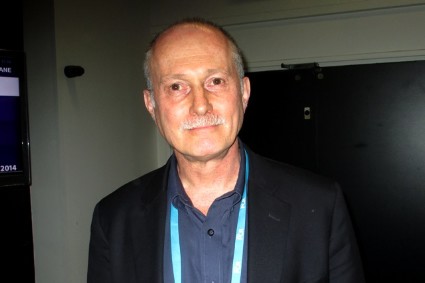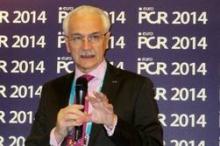"In patients with aortic stenosis, when you remove the obstructed [aortic] valve, they improve. In patients with mitral regurgitation, who develop very severely depressed left ventricular function, once you correct the regurgitation it increases stress on the ventricle and they can get into trouble," commented Dr. William Wijns, codirector of the Cardiovascular Center in Aalst, Belgium. "The complexity of the mitral valve problem is several orders of magnitude greater than with transcatheter aortic valve replacement," Dr. Wijns said.
Dr. Thomas has been a consultant to and has received research support from Edwards, the company developing the Fortis valve. Mr. Bapat has been a consultant to Edwards, Medtronic, and St. Jude and has received research support from Edwards. Dr. Cheung has been a consultant to and received honoraria from Neovasc, the company developing the Tiara valve. Dr. Wijns has received grant support to his institution from Edwards and 15 other companies, and he owns stock in two health care companies and a biotechnology company.
On Twitter @mitchelzoler



